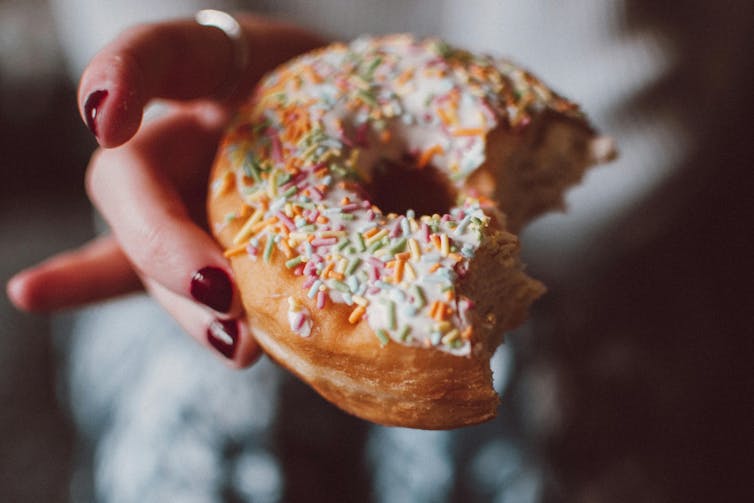
Ever find yourself unable to stop scrolling through your phone, chasing that next funny video or interesting post?
Or maybe you've felt a rush of excitement when you achieve a goal, eat a delicious meal, or fill your online shopping cart.
Why do some experiences feel so rewarding, while others leave us feeling flat? Well, dopamine might be responsible for that. Here's what it does in our brains and bodies.
It's a chemical messenger
Dopamine is a neurotransmitter – a chemical messenger that facilitates communication between the brain and the central nervous system. It sends messages between different parts of your nervous system, helping your body and brain coordinate everything from your movement to your mood.
Dopamine is most known for its role in short-term pleasure, and the boost we get from things such as eating tasty foods, drinking alcohol, scrolling social media or falling in love.
Dopamine also assists with learning, maintaining focus and attention, and helps us store memories.
It even plays a role in kidney function by regulating the levels of salt and water we excrete.
Conversely, low levels of dopamine have been linked to neurodegenerative disorders such as Parkinson's disease.
How dopamine motivates us to pursue pleasure
Dopamine is not just active when we do pleasurable things. It's active beforehand and it drives us to pursue pleasure.
Say I go to a cafe and decide to buy a doughnut. When I bite into the doughnut, it tastes fantastic. Dopamine surges and I experience pleasure.
The next time I walk past the cafe, dopamine is already active. It remembers the doughnut I had last time and how delicious it was. Dopamine drives me to walk back into the cafe, purchase another doughnut and eat it.

From an evolutionary perspective, dopamine was incredibly important and it ensured survival of the species. It motivated behaviours such as hunting and foraging for food. It reinforced the pursuit of finding shelter and safety and keeping away from predators. And it motivated people to seek out mates and to reproduce.
However, modern technology has amplified the effects of dopamine, leading to negative consequences. Activities such as excessive social media use, gambling, consuming alcohol, drug use, sex, pornography and gaming can stimulate dopamine release, creating cycles of addiction and compulsive behaviours.
Our dopamine levels can vary
Our brain is constantly releasing small amounts of dopamine at a “baseline” rate. This is because dopamine is crucial to the functioning of our brain and body, irrespective of pleasure.
Everyone has a different baseline, influenced by genetic factors such as our DRD2 dopamine receptor genes. Some people produce and metabolise dopamine faster than other people. Our baseline levels can also be influenced by sleep, nutrition and stress in our lives.
Given we all have a baseline of dopamine, our experience of pleasure at any given time is relative to our baseline rate and relative to what has come before.
If I play games on my phone all morning and get a dopamine release from that, then I eat something tasty for morning tea, I may not experience the same level of fulfilment or enjoyment that I would have had I not played those games.
The brain works hard to regulate itself and it won't allow us to be in a constant state of dopamine “highs”. This means we can build a tolerance to certain exciting activities if we seek them out too much, as the brain wants to avoid being in a state of constant dopamine “highs”.
Healthy ways to get a dopamine boost
Thankfully, there are healthy, non-addictive ways to boost your dopamine levels.
Exercise is one of the most effective methods for boosting dopamine naturally. Physical activities such as walking, running, cycling, or even dancing can trigger the release of dopamine, leading to improved mood and greater motivation.

Research has shown listening to music you enjoy makes your brain release more dopamine, giving you a pleasurable experience.
And of course, spending time with people whose company we enjoy is another great way to activate dopamine.
Incorporating these habits into daily life can support your brain's natural dopamine production and help you enjoy lasting improvements in motivation, mood and overall health.
(Author: Anastasia Hronis, Clinical Psychologist, University of Technology Sydney)
This article is republished from The Conversation under a Creative Commons license. Read the original article.
Track Latest News Live on NDTV.com and get news updates from India and around the world

